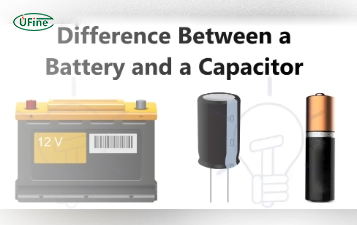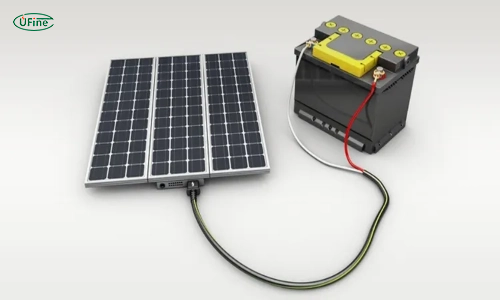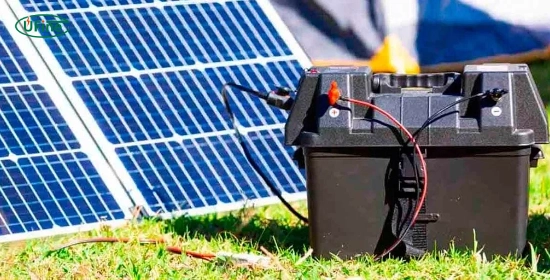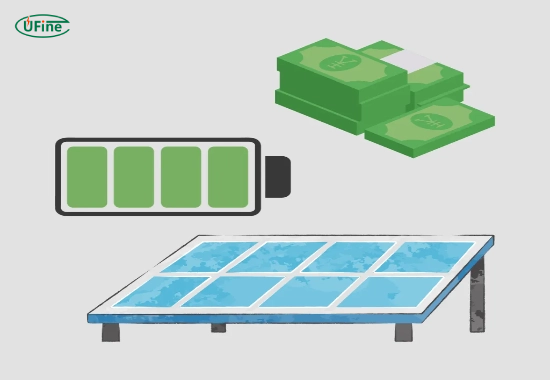
- Key Takeaways
- Part 1. What is a solar battery?
- Part 2. Why use a battery for solar panels?
- Part 3. Types of solar batteries
- Part 4. How much are solar batteries?
- Part 5. Key factors when choosing a solar battery
- Part 6. Solar battery installation & maintenance
- Part 7. Integration with solar power systems
- Part 8. Incentives and rebates
- Part 9. Solar battery FAQs
A solar battery stores excess electricity generated by solar panels and supplies power when solar energy is unavailable.
This guide explains how solar batteries work, compares major types, breaks down solar battery costs, and shows how to choose the right battery for solar panels based on real system requirements.
Key Takeaways
- Solar batteries store excess solar energy and supply power when solar panels are not producing electricity.
- Lithium-ion batteries (especially LiFePO₄) dominate new solar installations due to high efficiency and long cycle life.
- Solar battery costs typically range from $5,000 to $15,000 installed, depending on capacity, chemistry, and system design.
- Battery selection should be based on usable capacity, depth of discharge, compatibility, and application scenario—not price alone.
- Proper sizing, installation, and thermal management significantly extend battery lifespan and system reliability.
Part 1. What is a solar battery?
A solar battery is an energy storage device that stores electricity generated by solar panels for later use. Instead of sending excess power back to the grid, the battery retains energy so it can be used at night, during cloudy weather, or during power outages.
Solar batteries are widely used in residential, commercial, and industrial solar power systems to increase energy independence, improve reliability, and optimize energy costs.
How Solar Batteries Work:
Solar panels generate DC electricity when exposed to sunlight. This electricity flows through a charge controller into the battery, where it is stored as chemical energy. When electricity is needed, the battery discharges DC power to an inverter, which converts it into AC electricity for appliances or grid interaction.
Part 2. Why use a battery for solar panels?
Without a battery, solar panels only provide power when sunlight is available. A solar power battery solves this limitation by storing surplus energy and delivering it when generation drops.
- Store excess solar energy for nighttime use
- Provide backup power during grid outages
- Reduce reliance on utility grids
- Lower electricity costs by avoiding peak-rate consumption
- Enable off-grid or hybrid solar systems
Part 3. Types of solar batteries
1 Lead-acid solar batteries
Lead-acid batteries are a mature and widely used energy storage technology. They are commonly found in small off-grid solar systems and backup power applications.
- Pros: Low upfront cost, proven technology
- Cons: Shorter lifespan, lower efficiency, frequent maintenance
- Typical lifespan: 5–10 years
2 Lithium-ion solar batteries
Lithium-ion batteries are the most popular choice for modern solar installations. Lithium iron phosphate (LiFePO₄) is especially favored due to its thermal stability and long cycle life.
- Efficiency: 90–95%
- Lifespan: 10–15+ years
- Maintenance: Minimal
Learn more about lithium battery technologies in our lithium battery guide.
3 Flow batteries
Flow batteries store energy in liquid electrolytes and are mainly used for large-scale or long-duration energy storage.
- Extremely long cycle life
- Scalable capacity
- Higher upfront cost and larger footprint
Part 4. How much are solar batteries?
One of the most common questions is: how much are solar batteries? The answer depends on battery type, capacity, brand, and installation complexity.
Typical installed cost range: $5,000–$15,000
- Battery capacity: Higher kWh = higher cost
- Battery chemistry: Lithium-ion costs more than lead-acid
- Installation: $1,000–$3,000 depending on system design
- Warranty & brand: Premium brands charge more
Part 5. Key factors when choosing a solar battery
Capacity (kWh)
Battery capacity determines how much energy can be stored. Residential systems typically use 5–20 kWh batteries.
Depth of discharge (DoD)
Higher DoD allows more usable energy per cycle. Lithium batteries often support 80–100% DoD.
Efficiency
Round-trip efficiency indicates how much energy is retained after charging and discharging. Higher efficiency means less energy loss.
Lifespan & warranty
Evaluate cycle life, calendar life, and warranty terms to estimate long-term value.
Part 6. Solar battery installation & maintenance
Installation considerations
- Install in a well-ventilated, temperature-controlled area
- Ensure compatibility with inverter and charge controller
- Follow local electrical and safety standards
Thermal management
Temperature has a major impact on battery performance and lifespan. Proper enclosure design is essential. Learn more about solar battery enclosures.
Maintenance
- Inspect terminals and wiring regularly
- Monitor state of charge and system logs
- Lead-acid batteries require electrolyte checks
Part 7. Integration with solar power systems
Solar batteries can be integrated into off-grid, grid-tied, or hybrid systems. Proper system design ensures stable energy flow and maximizes battery lifespan.
- MPPT charge controllers improve charging efficiency
- Inverters must match battery voltage and power ratings
- Hybrid systems require advanced energy management
Part 8. Incentives and rebates
Many regions offer financial incentives for installing solar batteries. In the United States, the Investment Tax Credit (ITC) allows qualified systems to deduct a percentage of total costs from federal taxes.
Check official government or utility resources for current policies, such as the U.S. Department of Energy.
Part 9. Solar battery FAQs
What is a solar battery and how does it work?
A solar battery stores excess solar energy and supplies power when solar panels are not producing electricity.
How long does a solar battery last?
Most solar batteries last 5–15 years, with lithium-ion batteries lasting longer than lead-acid types.
How much are solar batteries on average?
Solar batteries typically cost $5,000–$15,000 installed, depending on capacity and battery technology.
Can a battery for solar panels work during power outages?
Yes, a solar power battery can provide backup power during outages if properly configured.
Are lithium-ion solar batteries better than lead-acid batteries?
Yes, lithium-ion solar batteries offer higher efficiency, longer lifespan, and greater usable capacity.
Related Tags:
More Articles

Capacitor vs Battery: What is the Difference?
Capacitor vs battery explained in detail. Learn the difference between capacitor and battery in energy storage, charging speed, lifespan, and real applications.
18650 Battery vs AA: Which Is Better for Your Device?
Compare 18650 vs AA batteries in capacity, voltage, rechargeability, and applications. Learn which battery type fits high-drain or everyday devices.
What is the Difference Between Battery Cell, Battery Control Module, and Battery Pack?
Compare battery cells, modules, and packs. Learn functions, design differences, control modules, and selection tips for EV, ESS, and industrial use.
How to Prevent LiPo Battery Explosion?
Can LiPo batteries explode or catch fire? Learn key causes of LiPo battery fires and proven charging, storage, and handling tips to reduce explosion risk.
Aluminium Ion Battery vs Lithium-Ion: A Detailed Comparison
Compare aluminium ion battery vs lithium-ion battery in energy density, charging speed, safety, cost, and uses. A practical guide for engineers and buyers.





